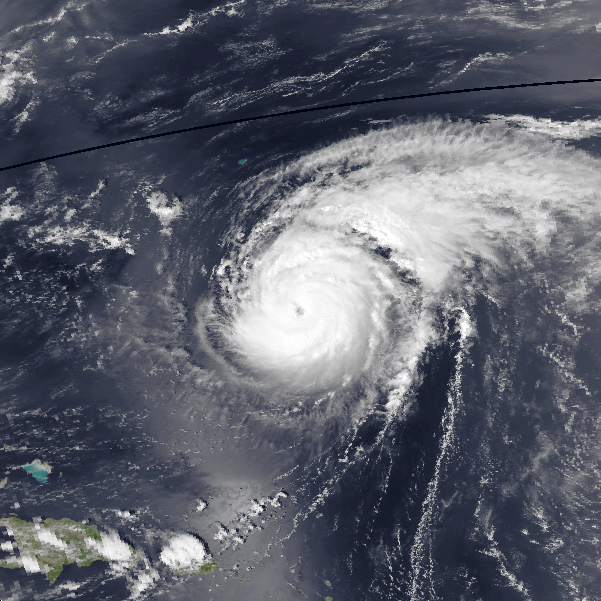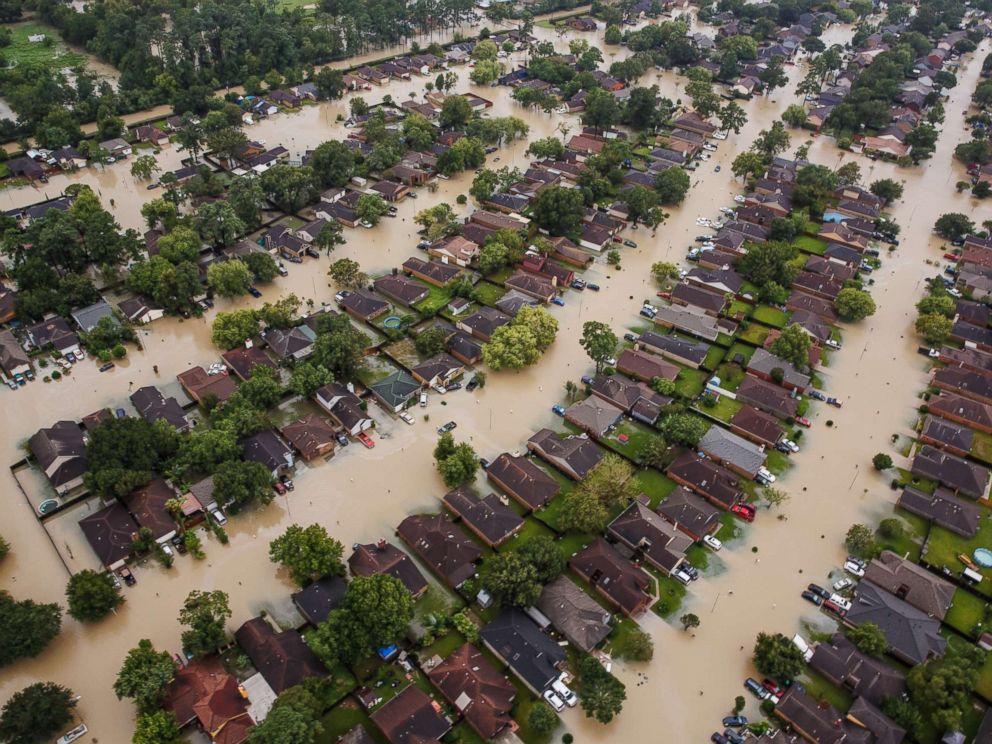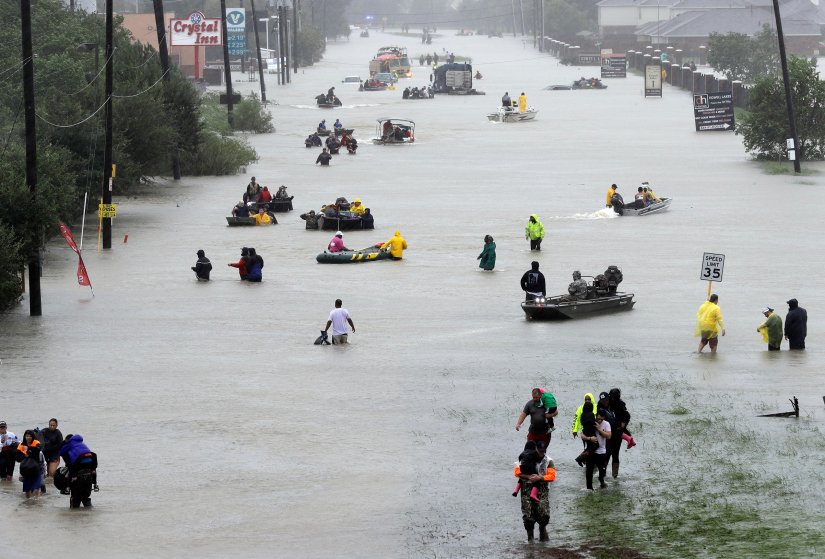World News – Eight years after Hurricane Katrina devastated the New Orleans area, a 4-year-old boy died after playing on a backyard Slip ‘N Slide. He had been infected with a brain-destroying amoeba called Naegleria fowleri.
 It was the first time the amoeba had been found in tap water in the U.S. and health officials said it had likely grown there as a result of Katrina’s devastation.
It was the first time the amoeba had been found in tap water in the U.S. and health officials said it had likely grown there as a result of Katrina’s devastation.
But not because of any “toxic gumbo” spread by floodwaters. Instead, the state health department said, the microbe grew in water pipes that stretched across neighborhoods emptied by the hurricane’s destruction. As fewer people drew on water supplies, water could sit in pipes for longer, creating a warm and nourishing environment for the amoeba to grow.
The solution: flushing the pipes repeatedly with fresh water and chlorine disinfectant. But the problem remains. Evidence that the amoeba still survives in the water system keeps popping up, even as late as this summer.
It’s a valuable lesson about expecting the unexpected after a flood. People are sharing social posts about getting tetanus vaccines, about potentially deadly bacteria in fresh floodwaters and about outbreaks of cholera. But the U.S. is not especially prone to outbreaks after natural disasters.
“Increases in infectious diseases that were not present in the community before the flood are not usually a problem,” the Centers for Disease Control and Prevention notes.
Most immediate health problems after any disaster in the U.S. are fairly ordinary, said Dr. Michael Millin, associate professor of emergency medicine at Johns Hopkins University School of Medicine and medical director for fire and EMS services in Prince George’s County, Maryland.
“There will be sunburns, insect bites,” he said. People may get dehydrated if they run short of clean drinking water, or get an upset stomach if they drink contaminated water. But ordinary problems can turn deadly fast during a disaster. Patients with chronic medical conditions such as diabetes or kidney disease may run out of the supplies they need to manage their disease and they can become very ill and even die.
Carbon monoxide poisoning is also a big threat as people run generators and don’t set them far enough away from houses, or cook on grills inside garages or too near to windows or, even inside their homes.
But some health dangers from floods are subtler and longer-term.
“I think we are going to be looking at a 15- to 20-year recovery for the region of Texas that is affected,” said Dr. Irwin Redlener, director of the National Center for Disaster Preparedness at Columbia University.
“I think it is going to be the most complex and costly disaster recovery in U.S. history, including the very widespread impact of the flooding.”
Here are some of the risks:
Chemicals and Heavy Metals
Thursday morning at least two explosions sent smoke into the air at a flooded chemical plant operated by Arkema Group. Experts said the chemicals in the smoke would dissipate quickly, but 15 deputies were treated and released from hospital after breathing in the irritating smoke.
Those chemicals are unlikely to cause long-term damage, but the Houston area has dozens of Environmental Protection Agency Superfund sites. They include the Brio refining site 20 miles south of the city, where petrochemicals such as diesel, toluene, ethylbenzene and jet fuel were reprocessed; Crystal Chemical Co., where herbicides including arsenic-based products were made and which has a history of releasing arsenic after flooding; the French site where petrochemicals and heavy metals were dumped and where they remain in the soil and water; and others.
Solvents such as ethylbenzene and toluene can get into air, water and soil but break down quickly. However, heavy metals such as lead and mercury never leave soil and if they get spread by flood waters, they can settle into farmland, grazing pasture, get into groundwater and settle in people’s yards. The effects can take years to discover but both are nerve toxins especially dangerous to infants and young children.
The flood has passed through and over gas stations, repair shops and storage depots and there will be no controlling where the waters spread and deposit chemicals from these locations.
“There is going to be a level of contamination that we have never seen before in floodwater because of the proliferation of chemicals plants, oil refineries,” Redlener predicted.
“Even when the waters recede, we’ll still have the soil surfaces where the water was that will still be rife with pollutants of all kinds. When will it be safe to drink water, have kids walk around barefoot? I don’t think anyone knows yet.”
Closed Clinics
Most Houston area hospitals have done a good job of preventing permanent damage and none are expected to have to close long-term. For instance, the Texas Medical Center, home to Texas Children’s Hospital, Baylor College of Medicine, MD Anderson Cancer Center and other very high-profile hospitals, installed floodproof doors in its underground connecting passageways.
But smaller clinics, such as ambulatory care centers, dialysis centers and drugstore-based walk-in clinics are sprinkled throughout neighborhoods and those that have been badly flooded could be out of operation for weeks or months. Pharmacies, too. Houston was difficult to get around pre-Harvey, and after this catastrophic flood it will be even harder. Displaced people and those who lack cars will be especially unable to find alternatives for daily care.
“Patients who are on dialysis, if they don’t get dialysis, they get short of breath and they can get pretty sick,” Millin said. Patients can die after missing just a few treatments.
“Huge numbers of adult Americans, close to 50 percent, are taking some sort of really important medications: asthma medication, heart medication,” Redlener said. “Are the supply chains for those medications working properly? Because if not, we are going to see complications of some illnesses, even fatalities.”
More immediately, thousands of people are trapped by the floodwaters, unable to get to local pharmacies, or to be reached by ambulance. “What happens if somebody gets really sick? Or if a child has a serious asthma attack and has to go to the hospital?” Redlener asked.
It’s already happening. “People can’t go to pharmacies because they’re not open. They’re under water,” said Dr. Terri Schmidt, chief medical officer for one federal medical response team at the Houston Convention Center. “They can’t get their regular medications. There are lots of behavioral and mental health issues because people are stressed again are off their medications.”
Damage to Homes
Even a little water damage can cause long-term problems for a house. Mold grows quickly, and people who were not sensitive to mold spores before can acquire a sensitivity if they breathe in large amounts, the CDC advises.
“You can predict enormous problems with mold infestation,” said Redlener.
And people’s efforts to clean up could worsen them. “If the HVAC system was flooded with water, turning on the mold-contaminated HVAC will spread mold throughout the house,” CDC cautions homeowners on its website.
More immediately, homeowners may come back to flood-damaged homes and turn on electricity without thinking. Doing so in standing water could be deadly. “If you see frayed wiring or sparks, or if there is an odor of something burning but no visible fire, you should immediately shut off the electrical system at the circuit breaker,” the CDC advises.
And salvaging a wet car can also be tricky. “Car batteries, even those in flood water, may still contain an electrical charge and should be removed with extreme caution by using insulated gloves. Avoid coming in contact with any acid that may have spilled from a damaged car battery,” the CDC notes.
Food touched by flood waters should be thrown out, unless it was in impermeable packaging – and even then the packaging should be thoroughly cleaned with soap and water or a bleach solution. The Food and Drug Administration issued a warning earlier this week about food distributors and the risk of using food contaminated by flood waters.
Mental Health
The trauma of being flooded, of fleeing homes, of losing property and of spending days or weeks on end in crowded shelters with little or no privacy, will add up, Redlener said.
“The mental health issues here are going to be considerable,” he said. Post traumatic stress disorder, depression and anxiety are all possible consequences of surviving a disaster.
Kids especially, may suffer long term, said Redlener, a pediatrician who helped found the the Children’s Health Fund to help kids with such problems. Many will have been separated from their parents. “Children are very vulnerable psychologically,” he said.
Mosquitoes
The immediate flooding can actually wash away mosquitoes and clear out the places where they shelter, such as inside sewer pipes, dumped tires and in stagnant ponds. But after things start to dry out, weeks and months and even years down the road, debris and new ponds of standing water could provide even more places for disease-carrying mosquitoes to breed and spread.
Houston is home to mosquitoes that spread West Nile virus, dengue, Zika and other potentially deadly infections.
by MAGGIE FOX, NBCNews.com

